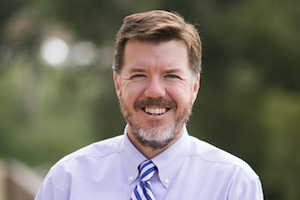Community Justice Clinic Partners with Global Institutions to Investigate Human Trafficking and Modern Slavery in Latin America
 In fall 2020 faculty and students at the Community Justice Clinic at the Caruso School
of Law partnered with law professors and students in Brazil and Colombia to research
and compare laws in every nation in North, Central, and South America, with a particular
focus on human trafficking and modern slavery. Launched in association with the Global
Pro Bono Bar Association, the multi-year project aims to develop a comprehensive survey
and law comparison that will be applied toward enhancing public policy and empowering
local attorneys, non-governmental organizations (NGOs), and governmental agencies
to improve their response to these crimes.
In fall 2020 faculty and students at the Community Justice Clinic at the Caruso School
of Law partnered with law professors and students in Brazil and Colombia to research
and compare laws in every nation in North, Central, and South America, with a particular
focus on human trafficking and modern slavery. Launched in association with the Global
Pro Bono Bar Association, the multi-year project aims to develop a comprehensive survey
and law comparison that will be applied toward enhancing public policy and empowering
local attorneys, non-governmental organizations (NGOs), and governmental agencies
to improve their response to these crimes.
While research and analysis are in their earliest stages, collaborators have already discovered an emerging theme: that most nations have relatively aggressive and modern basic laws on human trafficking and modern slavery, but that the application and enforcement of these laws are inconsistent and often ineffective.
“Many countries simply do not have the resources to enforce and apply their own laws, and the rule of law suffers with corruption and weakened democracies,” says Jeffrey R. Baker, clinical professor of law, assistant dean of clinical education and global programs, and director of the Community Justice Clinic at the Caruso School of Law, who also serves on the Global Pro Bono Bar Association’s advisory board.
The Community Justice Clinic offers a robust collaborative international law practice, representing nonprofit organizations and NGOs in numerous countries on five continents. While exposing students to comparative law analysis, this project will help them define concepts of competence, diligence, and integrity as they advance human rights while promoting professional formation, creativity, humility, and cross-cultural communication and collaboration.
The project’s roots originated in 2017 when Baker taught a week-long course as part of the Exchanging Hemispheres program with the law school at Mackenzie Presbyterian University in São Paulo, Brazil. There he met Paula Danese, a human rights attorney who now teaches law students at Ibmec University in São Paulo. Baker and Danese, along with professors and attorneys at Universidad del Rosario in Bogotá, have since partnered to commence the project, with the goal to produce a preliminary report of their findings by the end of 2021.